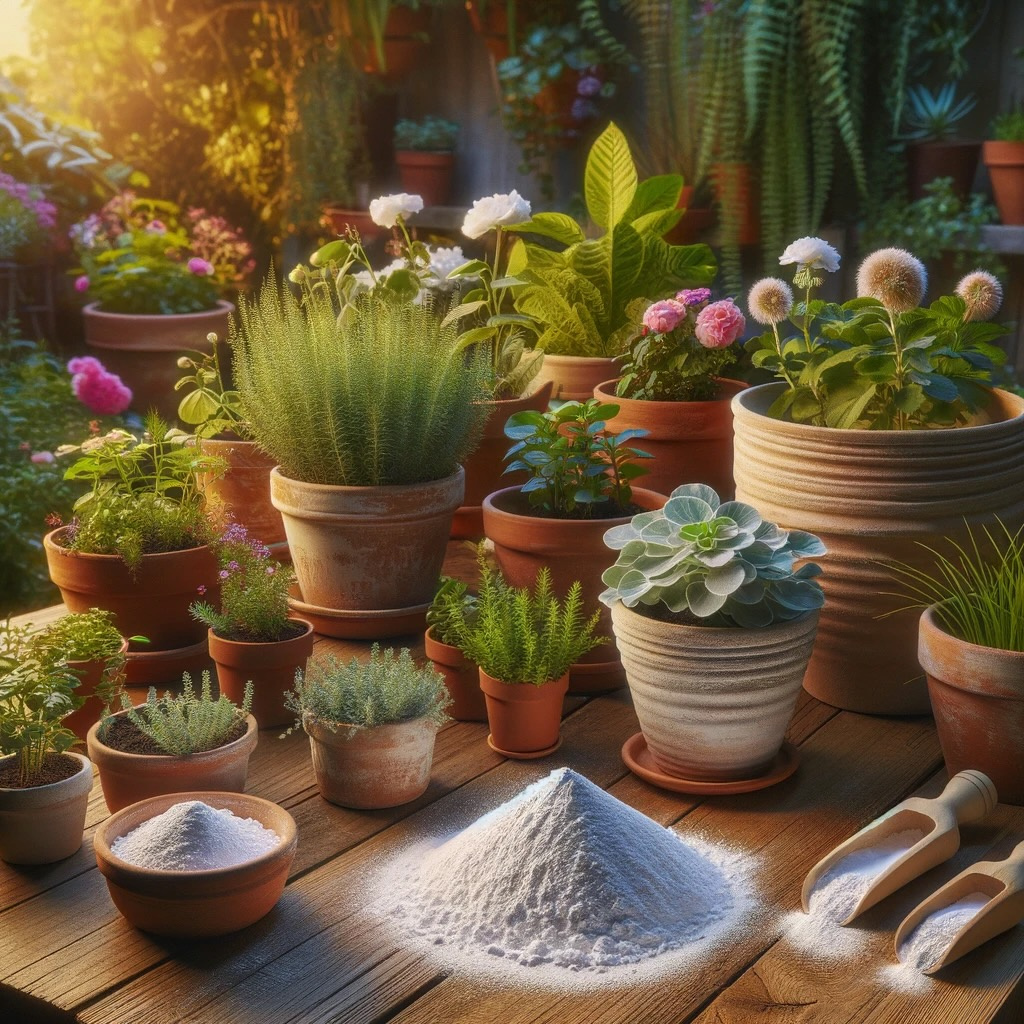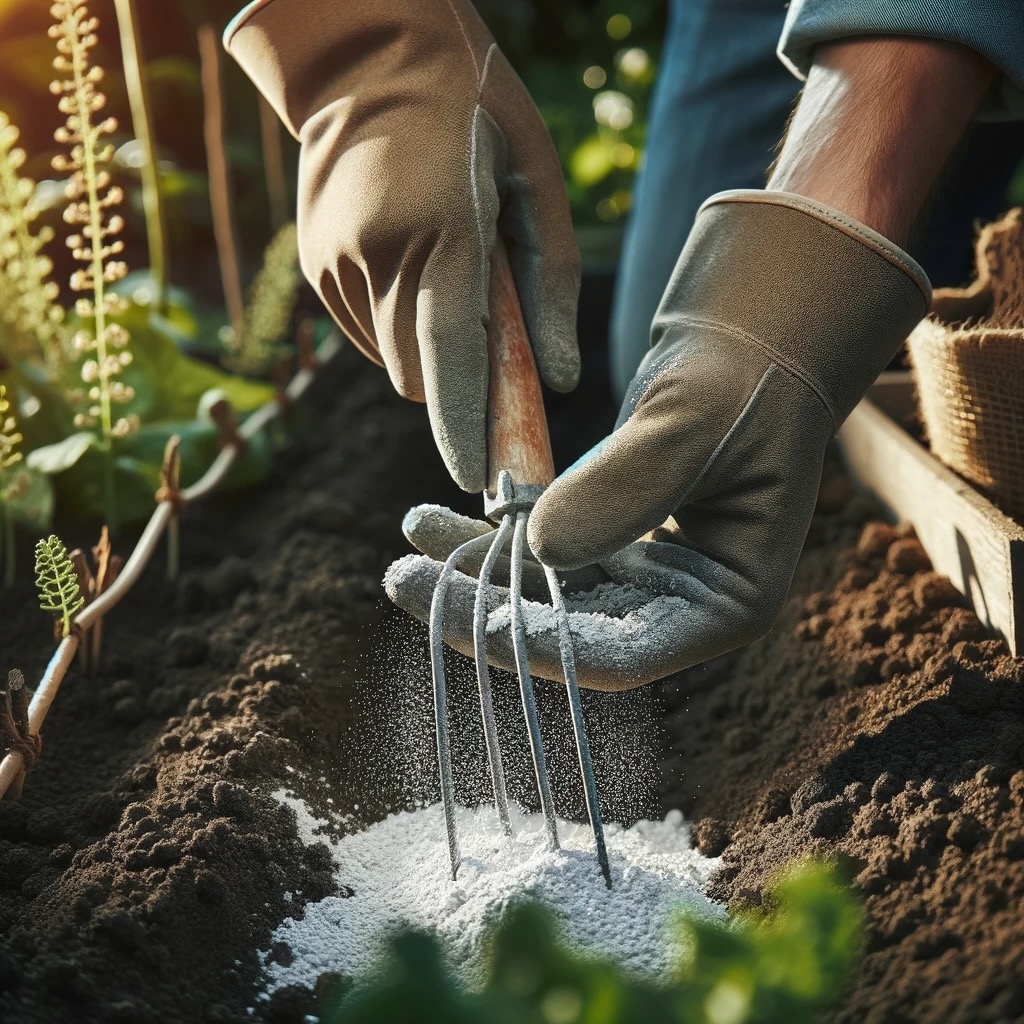
Gypsum Introduction
Gypsum, a soft sulfate mineral known as calcium sulfate dihydrate, has been used for centuries as a reliable soil amendment to improve soil structure, enhance water infiltration, and reclaim saline and sodic soils.
Its ability to provide essential nutrients and improve soil physical properties makes it a valuable tool for gardeners and farmers seeking to optimize plant health and soil condition.
This guide explores the numerous benefits of gypsum, its nutritional profile, practical application methods, compatibility with various plants and soil types, and its environmental sustainability.

Gypsum Key Benefits
The application of gypsum offers several advantages for soil health and plant growth:
- Soil Structure Improvement: Gypsum helps break up compacted soil, enhancing aeration and enabling deeper root penetration.
- Enhanced Water Penetration: By improving soil structure, gypsum promotes better water infiltration, reducing surface runoff and erosion.
- Nutrient Availability: Gypsum supplies calcium and sulfur, essential nutrients that support plant growth, without altering soil pH.
- Salinity Management: It helps leach excess sodium from the soil, mitigating salt damage and improving soil and water quality for plants.

Gypsum Nutritional Profile
Gypsum is an excellent source of calcium and sulfur, two nutrients vital for plant health.
- Calcium plays a crucial role in cell wall structure, root development, and nutrient uptake.
- Sulfur is essential for protein synthesis and enzyme activity within the plant.
Unlike lime, gypsum does not affect soil pH, making it suitable for use in a variety of soil types and conditions.

How to Use Gypsum
Incorporating gypsum into your gardening practice is simple and effective:
- For Soil Conditioning: Apply gypsum at a rate of 20-50 pounds per 1,000 square feet to improve soil structure. It can be applied directly to the soil surface and watered in.
- For Saline Soils: To combat soil salinity, a heavier application may be required, followed by deep watering to leach away the salts.
- For Gardens and Lawns: Sprinkle gypsum evenly over the soil or lawn area and water thoroughly. It can be applied any time of the year, as needed.

Ideal Plants and Soil Types
Gypsum is particularly beneficial for plants sensitive to soil salinity and those requiring high levels of calcium for optimal growth, such as tomatoes, carrots, and other root crops.
It's also effective in improving the growth of lawns and ornamental plants in compacted or clay soils.
Gypsum is versatile and can be used in various soil types, especially in sodic soils where excess sodium is a concern.

Sustainability and Environmental Impact
Gypsum is an environmentally friendly soil amendment. As a natural mineral, it is mined and processed with minimal environmental impact.
Its use in agriculture contributes to sustainable soil management by improving soil structure, reducing erosion, and helping reclaim saline and sodic soils.
Additionally, by providing essential nutrients in a natural form, gypsum reduces the need for synthetic fertilizers, promoting healthier ecosystems.

Gypsum Tips and Tricks
To get the most out of gypsum in your garden, keep these tips in mind:
- Soil Testing: Conduct a soil test before application to determine if gypsum is needed and at what rate.
- Regular Applications: For soils with ongoing salinity or compaction issues, consider applying gypsum annually or as indicated by soil tests.
- Combine with Organic Matter: Mixing gypsum with organic amendments like compost can further enhance soil structure and fertility.

Gypsum Conclusion
Gypsum offers a straightforward and natural way to address common soil issues, from compaction to salinity, while providing essential nutrients to plants.
By integrating gypsum into your soil management practices, you can enjoy healthier plants and more productive gardens. We encourage you to check out our shop and try gypsum in your garden.


